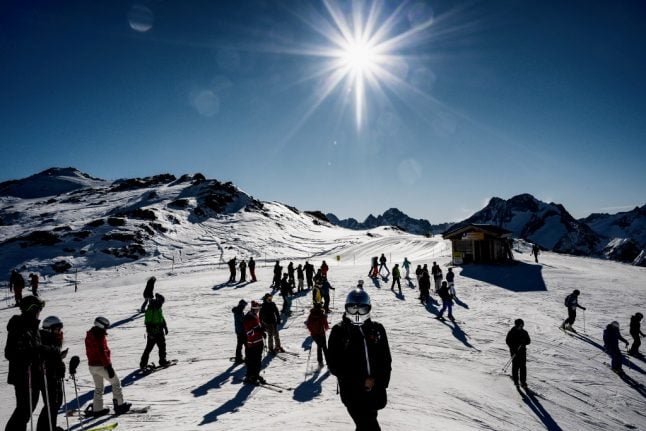The year of 2019 saw both the biggest fall in unemployment for a decade and the lowest overall rate of unemployment for a decade in France.
READ ALSO Why 2020 is set to be a good year for job hunters in France
But while the technology and engineering sectors have dominated in Paris and the south, Lyon and the surrounding Auvergne-Rhône-Alpes region is likely to see a continued concentration on jobs in the health, tourism and transport sectors.
The data comes from the French unemployment office Pôle emploi, combined with local chambers of commerce, unions, local authorities and companies, as well as the recruitment agency Adecco and was put together in a major data journalism exercise by French newspaper Le Parisien.
READ ALSO How to write the perfect CV for getting a job in France

Here's who will be recruiting in 2020.
1. Healthcare. Lyon's Hospices Civils de Lyon is the country's second largest university hospital and will be recruiting about 2,000 posts over the year, particularly for nurses and healthcare assistants.
2. Tourism. Holiday operator Club Med says it plans to hire 1,800 new staff over 2020, particularly in the Alpine ski resorts in France. Languages are the key here as employees will be expected to speak 'at least' English and French. They will be looking for hotel employees, staff in the ski resorts and in sales support.
3. Transport. The region's public transport operator Keolis is looking to hire both in Lyon and in towns across the region including Valence, Chambéry and Vichy. It is projected to need 800 roles filled over 2020. As well as bus, Metro and tram drivers they are also looking for technicians and mechanics. You get free transport across the regional network on top of your salary.
4. Insurance. Insurance company Sfam has launched a recruitment driver for an extra 500 staff, mainly telephone operators in sales and claims. The company says the sector is trying to make itself more attractive to work for, so is offering permanent contracts and salaries above industry standard.
5. Retail. Lidl is expanding and opening new stores across France and will be recruiting about 450 posts across the Auvergne-Rhône-Alpes region.
In the region Lyon is the major employment centre, but the tourist resorts in the French Alps also offer a lot of jobs, albeit many of them seasonal or on short term contracts.
The other major employment centre in the area is Geneva – over the border in Switzerland. Many people choose a cross-border commute to get the twin benefits of the high salaries on offer in Switzerland and the lower cost of living and better social benefits of France. In the town of Annecy, close to the Swiss border, 11 percent of the workforce are frontaliers.



 Please whitelist us to continue reading.
Please whitelist us to continue reading.
Member comments